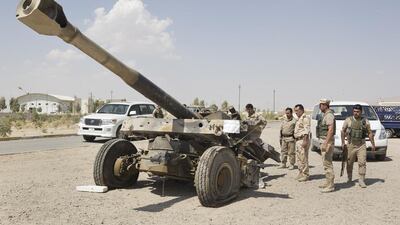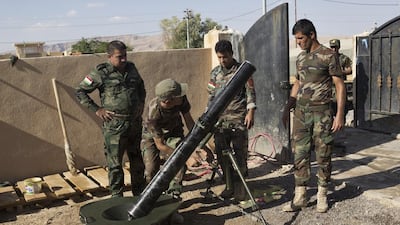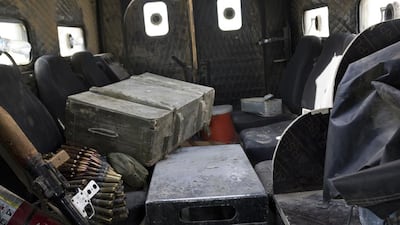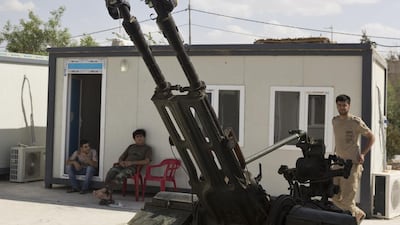Kurdish forces in Makhmur have just added Humvees, armoured vehicles and Kalashnikovs to their arsenal. According to Maj Gen Zrian Wassan, the new weapons were captured from ISIL in battles over the last month in western Kurdistan. Photos by Hawre Khalid / Metrography
In pictures: Kurds recapture Iraqi weapons lost to ISIL
Most popular today









